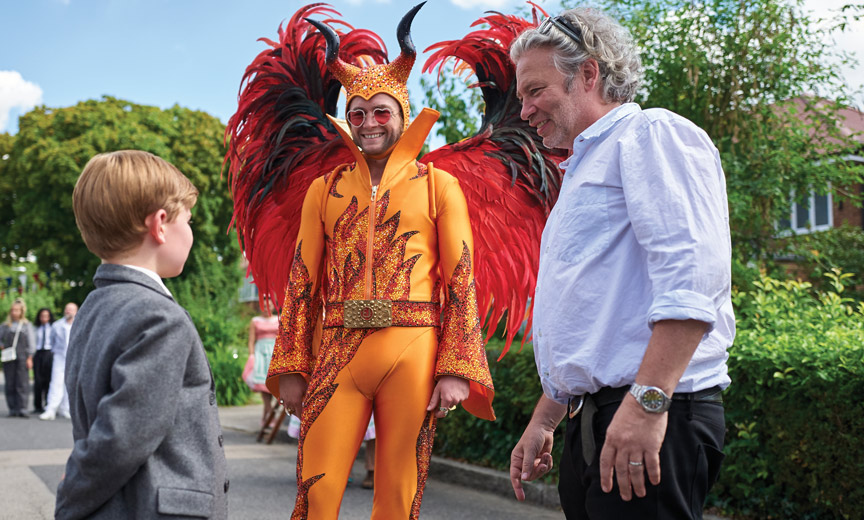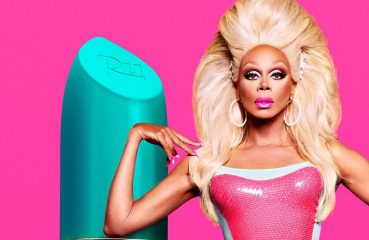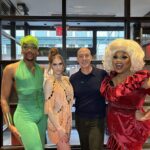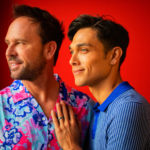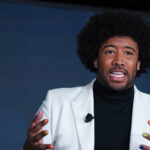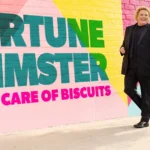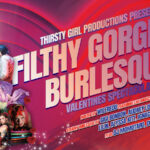When director Bryan Singer was fired from the Queen biopic Bohemian Rhapsody, studio execs turned to Dexter Fletcher to finish the film, which went on to win a Best Actor Oscar for Rami Malek as frontman Freddie Mercury. Now Fletcher is back with a cinematic fable called Rocketman featuring Kingsman star Taron Egerton as a shy, bespectacled pianist known as Reginald Dwight who took the world by storm as Elton John. We caught up with the director as he was putting the finishing touches on his project, which hits theaters the Friday before Pride month.
Metrosource: You worked with Taron on Eddie the Eagle. Then Taron and Elton worked together on The Kingsman sequel. But how did the three of you fall in together on Rocketman?
Dexter Fletcher: Well, Elton and Taron connected on The Kingsman, and the director of that film is Matthew Vaughn, who produced Eddie the Eagle — and is now the producer of Rocketman. Matthew is a huge Elton fan and tried to get Elton into the first Kingsman film, then ended up with him in the second. And I started hearing mumblings that Elton wanted Taron to play him and that Matthew Vaughn wanted to produce. I just knew this was a genius idea, because I know Taron and know that he has this incredible voice as well as an amazing range that’s been untapped as an actor. So I started actively pursued Matthew, saying, “If you’re doing this you’ve gotta give me a hat in the ring to direct it because it’s Elton, and it’s Taron playing Elton.” It’s a really amazing opportunity, and I think Matthew had it in his mind anyway. He knew that Taron and I had a very good working relationship.
More Content from Metrosource[wpp range=”last10days” cat=’16259,26,19687′ thumbnail_width=75 thumbnail_height=50 limit=3 stats_views=0]
With Bohemian Rhapsody, it’s hard to tell what’s yours from what Singer left you. Isn’t directing a film different from finishing one?
I’d actually worked on Bohemian Rhapsody before, when it was in a different iteration at a different studio a few years ago. I wanted to tackle it in a different direction than the way it ended up being. I wanted it to confront more, challenge more in dealing with certain aspects of Freddie’s life. But that was something that was very clear from the outset that they didn’t want to discuss or get into, and I always felt that it was an opportunity missed. So creatively, that was how that version came apart. With Rocketman, Elton has lived such an incredible life and I’m interested in telling that story in a more grown up way. … When I finished Bohemian Rhapsody, I can tell you every frame I shot; but some work is done for love and some you do for money. So I had the opportunity as a director to practice the craft, but not too much of the responsibility. It was not the way I would have chosen to make the film, but that’s not what I was there for. I was there to finish the work.
What we’ve seen of Rocketman so far feels reminiscent of both Moulin Rouge and the Beatles musical Across the Universe.
I think they’re wonderful comparisons to make. I love Moulin Rouge, and I think it’s just an incredible, stunning piece of work and Baz Luhrmann is a visionary filmmaker. He has his own voice and I love the humor and pathos and drama and spectacle of it all.
So Rocketman is more a fantasia than a strict docudrama?
Well, Elton is telling us his story. He’s our narrator, and the film opens with him entering group therapy. Then he sits down to tell us the story as he recalls it. So it’s different from Bohemian Rhapsody in that it’s a kind of third person point of someone from the outside looking in. And I wanted to tell a story about what the personal real experience was like being inside him, how the emotions felt. And memory is fallible. You can talk about seismic events in your life, but then they’re blurred by time and what we think we remember. So that really allows you to engage in fantasy.
Read Next | This Is Living Your Best Life: Caviar at Marky’s on Madison

Exactly. It meant I could say to the costume designer, let’s take inspiration from Elton’s costumes, but it’s his memory of them, how he would want them to be. When Elton saw them, he said, “God, I wish I f**king had that! That is great!!” That ended up happening. I took the first costume design to Elton for dinner, and he’s like, “That’s really great.” You know, this fantastic blinged-out orange suit with bat wings and horns on his head. But as you say, the imagination is freed and we can play with storytelling and bits of fantasia. That’s why I don’t really have any dates in the film.
How much of these liberties existed in the original screenplay?
“Saturday Night’s Alright For Fighting” was always in the script the way we shot it. Lee Hall had written it as a big dance number, and I took it and changed it to use it as a turning point for young teenage Reggie. Once I understood that as a musical, the songs go where they work best, it wasn’t a traditional biopic anymore. I freed myself from all of that and it was a huge liberty. But what I wanted to do was celebrate the music, and the best way I think that we could do that was by taking the songs and have them tell a story within the film, which gives them an emotional currency. If I’d stuck to the action timeline, I might have lost out.
Rumor has it you’ve been asked to tone down Elton’s sexuality.
I was always very clear about this: You can’t make a film about a person who’s so publicly known without addressing it. It’s a movie about Elton, so you know he’s going to wear glasses. He’s going to play the piano. And he’s going to kiss a man. Taron and I wanted to create a great intimate moment that is about a first sexual encounter that nine times out of ten are awkward and fumbled and full of nerves. But when we look back at them, you think, “God, that was a beautiful moment I had there.”
Want Metrosource LGBTQ content notifications? Sign up for MetroEspresso.
Last modified: July 23, 2019

